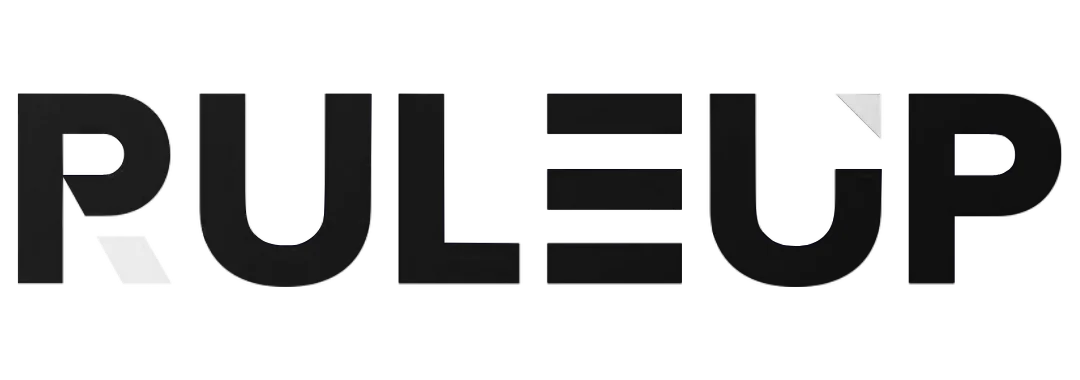
Image Source: Pixabay
Financial institutions face increasingly complex regulatory challenges, making compliance officers crucial guardians of organizational integrity and legal adherence. A compliance officer job description encompasses vital responsibilities that protect financial institutions from regulatory violations, reputational damage, and substantial penalties. These professionals serve as the cornerstone of risk management and regulatory compliance strategies.
This comprehensive guide examines the essential aspects of a compliance officer’s role in financial institutions. You will learn about core responsibilities, required technical skills, regulatory framework understanding, daily operations management, and career growth opportunities. Whether you’re considering a career in compliance or seeking to understand this critical role better, this article provides detailed insights into the responsibilities and qualifications needed to succeed in this demanding position.
Core Responsibilities of Financial Compliance Officers
Compliance officers in financial institutions shoulder critical responsibilities that form the foundation of organizational risk management and regulatory adherence. Their role extends beyond simple oversight to encompass strategic planning and proactive risk mitigation.
Risk Assessment and Management
At the core of a compliance officer’s duties lies comprehensive risk assessment and management. These professionals are responsible for conducting systematic evaluations to identify potential compliance risks across the enterprise. They assess both the likelihood and impact of various risks, enabling financial institutions to understand their risk exposure clearly. Risk computations help organizations prioritize compliance risks, link them to appropriate risk owners, and efficiently allocate resources for mitigation.
Key risk management responsibilities include:
- Conducting regular compliance risk assessments
- Developing risk mitigation strategies
- Implementing comprehensive information security measures
- Monitoring ecosystems for emerging security risks
- Supporting first-line defense in embedding best practices
Policy Development and Implementation
Policy development forms another crucial aspect of a compliance officer’s role. They are tasked with creating and maintaining compliance policies that align with regulatory requirements while ensuring practical implementation across the organization. These professionals must possess exceptional communication skills to effectively convey policy updates and coordinate compliance management information.
The policy development process involves updating existing frameworks, designing appropriate controls based on financial services regulations, and ensuring these policies remain current with evolving industry standards. Compliance officers work closely with various stakeholders to ensure policies are both comprehensive and implementable.
Regulatory Reporting and Documentation
The documentation and reporting responsibilities of compliance officers are extensive and crucial for maintaining regulatory compliance. They oversee the systematic process of collecting and submitting information about the organization’s financial and operational activities to regulatory authorities. This multifaceted process includes:
Compliance officers must maintain detailed records of all compliance activities, including risk assessments, policy updates, and control evaluations. They are responsible for preparing comprehensive reports for various stakeholders, from board members to regulatory bodies, ensuring transparency and accountability in all compliance-related matters.
Technical Skills and Qualifications Required
Success in the compliance officer role demands a comprehensive blend of formal education, professional certifications, and technical expertise. Financial institutions seek candidates who possess both theoretical knowledge and practical skills to navigate complex regulatory landscapes.
Educational Requirements and Certifications
A strong educational foundation is essential for compliance officers in financial institutions. A bachelor’s degree in finance, business administration, law, or related fields serves as the minimum requirement. Many organizations prefer candidates with advanced degrees such as an MBA or JD, particularly for senior positions.
Professional certifications that enhance credibility include:
- Certified Regulatory Compliance Manager (CRCM)
- Certified Anti-Money Laundering Specialist (CAMS)
- Certified Compliance and Ethics Professional (CCEP)
Technology and Software Proficiency
Modern compliance officers must demonstrate proficiency in various technological tools and platforms. GRC software expertise has become increasingly crucial for managing compliance processes effectively. Key technical competencies include:
Data Analysis Tools: Proficiency in compliance monitoring systems and transaction surveillance platforms is essential for detecting potential violations and maintaining regulatory adherence.
Automated Workflow Systems: Understanding of policy management software and regulatory change management solutions helps streamline compliance processes and ensure timely updates to procedures.
Industry-Specific Knowledge
Compliance officers must possess comprehensive knowledge of banking regulations and financial services frameworks. This includes:
Regulatory Framework Understanding: Deep familiarity with international banking regulations, local financial laws, and industry-specific compliance standards is crucial. Continuous learning is essential as regulatory requirements evolve regularly.
Risk Assessment Expertise: The ability to analyze and interpret complex regulations, identify potential risks, and develop appropriate mitigation strategies is fundamental to the role.
Business Acumen: Understanding of banking operations, financial products, and market dynamics enables compliance officers to develop practical, business-aligned compliance solutions.
Successful compliance officers combine these technical qualifications with strong analytical capabilities and attention to detail. They must demonstrate excellent communication skills to effectively convey complex regulatory requirements across all organizational levels while maintaining a culture of compliance and ethical behavior.
Regulatory Framework Understanding
Understanding the intricate web of financial regulations forms the cornerstone of effective compliance management in financial institutions. A comprehensive grasp of regulatory frameworks enables compliance officers to navigate complex requirements while ensuring organizational adherence to both international and local standards.
International Banking Regulations
The global financial landscape is governed by robust international banking standards, with the Basel Accords serving as the primary framework. These agreements establish fundamental requirements for bank capital adequacy, stress testing, and market liquidity risk. The implementation of Basel III has introduced enhanced standards that require banks to:
- Maintain specific risk-based capital ratios
- Implement comprehensive risk management systems
- Establish strong governance frameworks
- Develop effective stress testing procedures
- Monitor and report liquidity positions
Local Financial Laws and Guidelines
While international standards provide the foundation, local financial laws add crucial jurisdiction-specific requirements. Financial institutions must adapt their compliance programs to address both national and regional regulatory demands. The European Union, for example, has implemented specific regulations that focus on environmental, social, and governance (ESG) risks, requiring banks to consider sustainability goals in their risk management processes.
Compliance Standards and Protocols
Modern compliance protocols extend beyond traditional banking regulations to encompass emerging challenges. Anti-Money Laundering (AML) regulations represent a critical component of compliance standards, requiring financial institutions to implement robust monitoring systems and reporting procedures. These protocols typically involve:
- Customer Due Diligence (CDD) measures
- Suspicious activity reporting
- Transaction monitoring systems
- Record-keeping requirements
- Staff training programs
The Financial Action Task Force (FATF) sets international AML standards, while national regulators like FinCEN in the US and the European Banking Authority (EBA) oversee enforcement. Compliance officers must ensure their institutions maintain comprehensive programs that address both international standards and local regulatory requirements.
The regulatory landscape continues to evolve, particularly in response to emerging risks such as cyber threats and cryptocurrency-related challenges. Financial institutions must now incorporate specific capital charges for crypto-asset investments and maintain robust cybersecurity protocols. This dynamic environment requires compliance officers to stay current with regulatory changes while ensuring their organizations maintain effective compliance management systems.
Day-to-Day Operations Management
The daily operations of a compliance officer encompass a dynamic range of activities that transform regulatory requirements into actionable processes. These professionals serve as the operational backbone of financial institutions’ compliance programs, ensuring continuous adherence to regulatory standards while maintaining operational efficiency.
Monitoring and Surveillance Activities
Effective compliance monitoring requires a sophisticated blend of technological tools and human oversight. Compliance officers utilize advanced surveillance systems to monitor transactions, employee activities, and potential regulatory violations. Key monitoring responsibilities include:
- Real-time transaction surveillance
- Employee trading activity oversight
- Communication channel monitoring
- Regulatory reporting verification
- Risk indicator tracking
The implementation of automated compliance management platforms enables officers to streamline these monitoring processes while maintaining comprehensive oversight of organizational activities.
Investigation and Resolution Procedures
When potential compliance violations are detected, compliance officers must follow structured investigation protocols. The investigation process typically follows this framework:
| Phase | Activities | Outcome |
|---|---|---|
| Initial Assessment | Review of flagged incidents | Determination of investigation scope |
| Evidence Collection | Gathering documentation and data | Complete case file assembly |
| Analysis | Evaluation of collected evidence | Preliminary findings report |
| Resolution | Implementation of corrective measures | Final resolution report |
Investigations require meticulous documentation and clear communication channels between all stakeholders. Resolution procedures must align with both internal policies and regulatory requirements while ensuring transparent reporting to senior management.
Team Coordination and Leadership
Leading compliance initiatives requires strong coordination across multiple departments and stakeholders. Compliance officers must demonstrate exceptional leadership skills in:
Managing cross-functional teams to implement compliance programs effectively
Coordinating with department heads to ensure policy adherence
Providing guidance on complex regulatory matters
Training staff on compliance requirements and updates
The role demands strategic communication skills to bridge gaps between technical compliance requirements and practical business operations. Compliance officers must maintain regular dialog with senior management while ensuring their team remains updated on regulatory changes and enforcement priorities.
Effective compliance leadership also involves developing and maintaining a robust compliance culture throughout the organization. This includes regular training sessions, clear communication channels, and establishing accountability measures across all organizational levels.
The implementation of these operational responsibilities requires a delicate balance between maintaining rigorous oversight and supporting business objectives. Modern compliance officers leverage technology, data analytics, and management skills to create efficient, effective compliance programs that protect their institutions while enabling sustainable growth.
Career Development and Growth
The dynamic field of compliance offers robust career growth opportunities for professionals who demonstrate dedication to continuous learning and development. As regulatory landscapes evolve, compliance officers find themselves at the forefront of organizational risk management, with numerous pathways for professional advancement.
Professional Development Opportunities
Professional development in compliance combines formal education with practical experience and industry engagement. Networking opportunities play a crucial role through professional associations, offering compliance officers access to an international network of over 47,000 financial practitioners. Key development channels include:
- Industry conferences and seminars
- Professional workshops and training sessions
- Online learning platforms and e-learning modules
- Mentorship programs
- Industry association memberships
The International Compliance Association (ICA) and Society of Corporate Compliance and Ethics (SCCE) offer specialized certifications that enhance professional credibility and expertise. These qualifications demonstrate commitment to the field while providing practical knowledge essential for career advancement.
Advancement Pathways
Career progression in compliance can be remarkably swift, with dedicated professionals advancing to senior positions within a structured timeline:
| Career Level | Experience Required | Key Responsibilities |
|---|---|---|
| Junior Officer | 0-2 years | Policy implementation, monitoring |
| Senior Officer | 2-4 years | Risk assessment, team leadership |
| Compliance Manager | 5+ years | Strategy development, department oversight |
| Head/Director | 10+ years | Enterprise-wide compliance leadership |
Strategic career advancement often involves specializing in specific areas such as anti-money laundering, data privacy, or international regulations. Professionals can also explore alternative pathways including:
- Moving into related fields like auditing or cybersecurity
- Transitioning to compliance consulting roles
- Pursuing positions in regulatory bodies
- Developing expertise in emerging areas like ESG compliance
Continuing Education Requirements
The rapidly evolving nature of financial regulations demands a commitment to continuous learning. Professional qualifications serve as stepping stones for career advancement, with many institutions supporting their compliance officers in pursuing advanced certifications and degrees.
Continuing Professional Development (CPD) forms the cornerstone of ongoing education in compliance. Financial institutions typically provide access to:
- Online learning systems for regulatory updates
- Specialized compliance and risk-focused seminars
- Professional refresher courses covering emerging topics
- Access to digital libraries and resource centers
- Discounted training programs and workshops
Professional memberships with organizations like the Chartered Institute for Securities & Investment (CISI) offer exclusive benefits, including free access to compliance-focused seminars and substantial discounts on specialized training courses. These resources ensure compliance officers maintain current knowledge while developing expertise in emerging regulatory areas.
The field rewards those who demonstrate initiative in their professional development. Successful compliance officers often combine formal education with practical experience, leveraging both to build comprehensive expertise in risk management and regulatory compliance. This balanced approach to career development enables professionals to advance while maintaining the high standards required in modern financial institutions.
Conclusion
Financial compliance officers serve as essential guardians of organizational integrity within modern financial institutions. Their multifaceted role combines risk management expertise, technical proficiency, and strategic leadership skills to protect institutions from regulatory violations while supporting sustainable growth.
This comprehensive examination has highlighted several critical aspects of the compliance officer role:
- Strategic risk assessment and management capabilities
- Advanced technical skills and professional certifications
- Deep understanding of international and local regulatory frameworks
- Effective day-to-day operations management
- Robust career development pathways
Success in this field demands continuous learning and adaptation as regulatory requirements evolve. Compliance officers must balance technical expertise with strong leadership abilities while maintaining current knowledge of emerging regulations and industry best practices.
The role continues to grow in importance as financial institutions face complex regulatory challenges. Modern compliance officers stand ready to protect their organizations through comprehensive risk management strategies, robust monitoring systems, and effective policy implementation.



